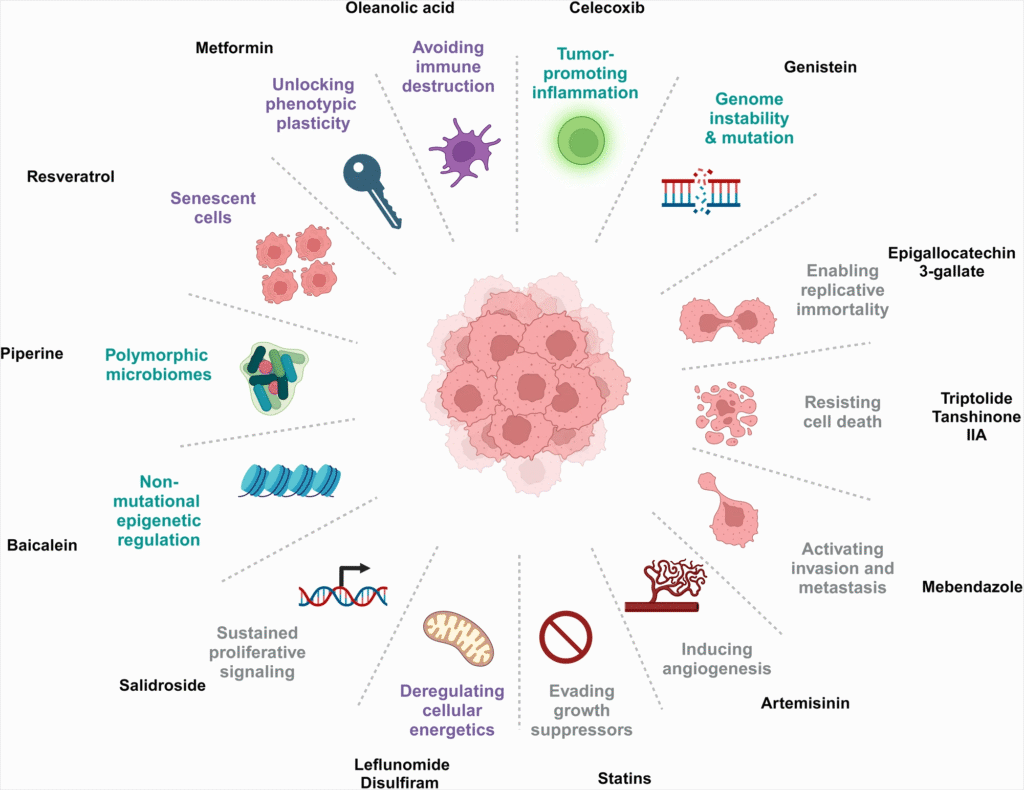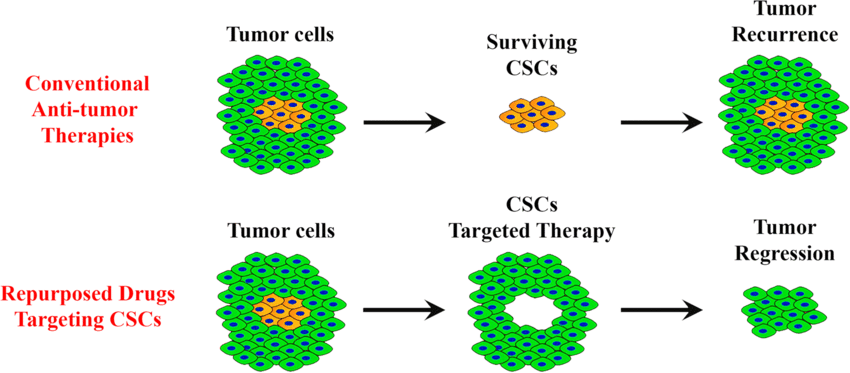CFOH METABOLIC PROTOCOL FOR BREAST CANCER
Cancer is complex — and Breast Cancer is no exception. That’s why effective treatment requires more than just targeting rapidly dividing cells. Our Science backed Metabolic Protocol for Breast Cancer addresses the multiple biological mechanisms cancer depends on. When used alongside conventional therapies like chemotherapy and radiation, it empowers your body to respond more intelligently, more effectively, and with renewed resilience — supporting natural healing and strengthening your defenses.
Who Is This Protocol Designed For?
The CFOH Metabolic Protocol is intended for women (and men) diagnosed with breast cancer who are seeking a more personalized, integrative, and biology-driven path to healing. This approach is right for you if you’re someone who:
newly diagnosed and want to strengthen your body before starting conventional treatment
currently undergoing chemotherapy/ radiation/ surgery & want to support your body during treatment
Have completed chemotherapy/ radiation/ surgery and want to reduce your risk of recurrence
Is experiencing side effects or fatigue and are looking for safe, effective ways to feel better
Want a non-toxic, root-cause approach that goes beyond simply killing cancer cells
Is ready to take an active role in your healing through metabolic, nutritional, and immune-based strategies
Disrupting Cancer’s Metabolic Pathways
Cancer cells have unusually high energy needs to survive, grow, and spread. Normally, our body converts food into energy through a well-regulated process called metabolism, which supports cell function and repair. However, in cancer, this system often goes haywire. Cancer cells begin to use energy differently than healthy ones — a phenomenon that scientists now recognize as a key feature of the disease. This has given rise to a newer area of study called metabolic oncology, which focuses on how cancer cells fuel themselves. By understanding these unique metabolic changes, we can develop smarter, more targeted therapies. [Hanahan & Weinberg²⁰⁰⁰; Hanahan & Weinberg²⁰¹¹; Bergers & Fendt²⁰²¹]
Aerobic glycolysis, also known as the Warburg effect, is a clever survival mechanism that cancer cells rely on. Unlike normal cells, cancer cells continue producing energy rapidly even in the presence of oxygen — using this energy-hungry shortcut to fuel their aggressive growth, spread, and resistance to treatment. [Kroemer & Pouyssegur²⁰⁰⁸; Liberti & Locasale²⁰¹⁶]

Targeting Cancer Stem Cells to Prevent Recurrence

One of the biggest challenges in cancer treatment isn’t just shrinking the tumor — it’s preventing it from coming back. Cancer stem cells (CSCs) are a small but powerful group of cells that can survive conventional therapies like chemotherapy and radiation. They’re more adaptable, more resistant, and capable of regenerating the tumor even after most of it has been destroyed.
This is where the metabolic approach adds critical value.
CSCs depend on distinct metabolic pathways — different from the rest of the tumor mass. By understanding and targeting these unique energy systems, we can use a combination of repurposed drugs, natural compounds, and metabolic therapies to weaken CSCs without harming healthy cells.
When we disrupt the metabolic engine that fuels CSCs, we don’t just treat cancer — we reduce the chance it returns.This integrative strategy may lower recurrence risk and support longer-lasting remission — a direction increasingly supported by emerging research in metabolic oncology.
CFOH Metabolic Protocol is specifically designed to disrupt these altered metabolic pathways. By targeting the unique energy demands and vulnerabilities of cancer cells, the protocol helps restrict their energy supply and blocks alternate escape routes they might use to survive. This sustained metabolic stress can weaken cancer cells, making them more vulnerable to conventional treatments like chemotherapy, radiation, and other targeted therapies. [Jang et al.²⁰¹³; Martinez-Outschoorn et al.²⁰¹⁷; Jagust et al²⁰¹⁹; Guerra et al.²⁰²¹]
(Prolonged metabolic stress can significantly disrupt the internal energy machinery of cancer cells. As their metabolic rate drops, these cells begin to struggle with absorbing and utilizing essential nutrients from their surroundings — such as glucose, fats, and critical amino acids like glutamine and arginine. This nutrient deprivation weakens their ability to grow, multiply, and spread. Over time, it also reduces their adaptability to changes within the body, making it harder for them to survive and resist ongoing treatments). [Luo and Wicha²⁰¹⁹; Zhao et al²⁰¹³; Butler et al²⁰¹³]
Why This Approach?
This isn’t just about attacking cancer — it’s about changing the environment that allows it to grow in the first place. Cancer thrives when the body is inflamed, metabolically imbalanced, and immunologically weak. That’s why our approach focuses on rebuilding the internal terrain — the biological ecosystem inside your body — to make it less hospitable to cancer, and more supportive of healing.
CFOH Metabolic Protocol addresses the why behind cancer — not just the what. It works to correct the underlying dysfunctions that may have contributed to the disease: chronic inflammation, mitochondrial damage, poor detoxification, hormonal imbalance, and weakened immunity. Instead of relying on a single treatment path, we use a multi-pronged, science-backed strategy that disrupts cancer’s energy supply and resilience from multiple angles — all while supporting your body’s strength and recovery.
This protocol is designed to:
Enhance effectiveness of treatments like chemotherapy/ radiation
Help reduce side effects and improve treatment tolerance
Make relapse less likely by targeting cancer’s root survival mechanisms
Rebuild and restore your body’s internal balance
It’s not just treatment. It’s transformation — guided by science, and customized for you.
Trusted Research Behind Our Breast Cancer Approach
Explore a curated collection of peer-reviewed studies that validate our integrative approach to Breast cancer treatment. These studies emphasize the role of metabolic therapies and integrative strategies in complementing conventional treatments, ultimately leading to improved outcomes and enhanced patient resilience.
- Doxycycline’s Impact on Tumor Burden in Breast Cancer Bone Metastasis (Duivenvoorden WC. (2002)) PMID: 11912125
- Revisiting Mebendazole as a Potential Anti-Cancer Agent– Pantziarka P. et al. (2014)
- Association Between Statin Use and Breast Cancer Outcomes Ahern TP. et al. (2014)
- How Metformin May Influence Drug-Resistant Breast Cancer Davies, G. et al. (2017)
- Evaluating the Role of Statins in Breast Cancer Treatment Borgquist S. et al. (2018)
- Analysis of Metformin’s Effect on Key Breast Cancer Biomarkers Rahmani J. et al. (2020)
- Overview of Metformin’s Potential in Breast Cancer Care De A. and Kuppusamy G. (2020)
- Investigating Statins as a Repurposed Therapy in Oncology Jiang, Wen. et al. (2021)
Further Scientific Evidence & Publications
Cancer Pathways/ Mechanisms Targeted by Repurposed Drugs
| Cancer Pathway / Mechanism | Repurposed Drugs (PubMed / Research Reference) |
| Restrict Nutrient Supply to Tumor Cells | Célia Rosilio et al. 2014 PMID: 24462823, Melissa A Babcook et al. 2016. PMID: 27441003 |
| Induce Metabolic Stress in Cancer Cells | Ida Pernicova et al. 2014. PMID: 24393785, J.W. Clendening et al. 2012. PMID: 22310279, Borja Guerra et al. 2021 PMID: 33718197, Binlu Huang et al. 2020. PMID: 32694690, Grace H McGregor et al. 2020 PMID: 31562248, Gábor Petővári et al. 2018 PMID: 30574020 |
| Enhance the Immune System’s Response to Cancer Cells | Esraa AI Dujaily et al. 2020. PMID: 32190817, Yongjun Yi. et al. 2013. PMID: 23707077, Blom Kristin. et al. 2017 PMID: 28472897, Bahrambeigi Saman et al. 2019 PMID: 31884044, Eikawa Shingo et al. 2015. PMID: 25624476, Kurelac Ivana et al. 2019 PMID: 31091466, Lucero-Diaz P.A. et al. 2016 (Abstract), H Tang et al. 2013 PMID: 23282955 |
| Inhibit Cancer Cell Growth and Spread | Muhamad N.A.K. 2019. PMID: 31831021, Wen Jiang et al. 2021. PMID: 34303383, Tapas Mukhopadhyay 2002 PMID: 12231542, Laine C. Pinto et al. 2015 PMID: 26315676, Binlie Yang et al. 2015 PMID: 26111245 |
| Modulate Mitochondrial Metabolism to Impair Cancer Cell Survival | Bela Ozsvari et al. 2017 PMID: 29080556, M Cazzaniga et al.2015 PMID: 26605341, Sonia M. et al. 2020 PMID: 32818805, Sas N. D. et al. 2020 PMID: 32152409 |
| Activate Apoptotic Pathways in Malignant Cells | H. Song et al. 2014 PMID: 25502932, D. Nicole et al. 2008 PMID: 18667591, J. Sasaki et al. 2002 PMID: 12479701, Neda Bayat et al. 2016 PMID: 27836464, Paola C. et al. 2005 PMID: 15705602, O. Fromigué et al. 2006 PMID: 16470222, K. Kalinsky et al. 2017 PMID: 27305912, Wen Jiang et al. 2021. PMID: 34303383 |
| Disrupt DNA damage repair pathways in cancer cells. | Elena V. E. et al. 2018 PMID: 29030460, Rebecca L. et al. 2015 PMID: 26087309, Maria Peiris-Pagès et al. 2015 PMID: 26425660 |
| Intervening with cancer stem cells may make them more receptive to standard oncological treatments. | Nipun Saini et al. 2018. PMID: 29342230, Jason R. B. et al. 2020 PMID: 32369446, Heather A. H. et al. 2009. PMID: 19752085, Cristian S. et al. 2018 PMID: 30364293, Yang Binlie. et al. 2015 PMID: 26111245, Neda Bayat et al. 2016 PMID: 27836464, S. Kato et al. 2018 PMID: 29848667, Liudmila L. K. et al. 2011 PMID: 21551187, Wen Jiang et al. 2021. PMID: 34303383, Anna M. et al. 2019 PMID: 31054863, |
| Suppress the development of tumor-associated blood vessels (anti-angiogenic effect) | Ren-Yuan Bai et al. 2015 PMID: 25253417, Stefania O. et al. 2015 PMID: 25196138, Weikun Qian et al. 2018 PMID: 30053447 |
Cancer Pathways/ Mechanisms Targeted by Natural Supplements
| Cancer Pathway / Mechanism | Natural Supplement | Source | (PubMed / Research Reference) |
| Inhibits PI3K/Akt/mTOR, NFκB, apoptosis | Curcumin | Turmeric | Maura C. et al. 2020 PMID: 32178382, Valeria C. et al. 2024. PMID: 39063939, Jessica M. et al. 2021 PMID: 34836091, |
| Modulates metabolism, induces apoptosis | Resveratrol | Grapes, Berries | Maura C. et al. 2020 PMID: 32178382, Valeria C. et al. 2024. PMID: 39063939, |
| Inhibits PI3K/Akt/mTOR, induces apoptosis | EGCG | Green Tea | V. Conti et al. 2024. PMID: 39063939, Jessica M. et al. 2021 PMID: 34836091 |
| Inhibits PI3K/Akt/mTOR, NFκB, apoptosis | Quercetin | Fruits, Veggies | V. Conti et al. 2024. PMID: 39063939, |
| DNA methylation, apoptosis, antioxidant | Selenium | Brazil nuts, fish | Michelle Harvie 2017 PMID: 24857143, María E. M. et al. 2012 PMID: 22534785, Oladapo F. F. et al. 2023 PMID: 37047063 |
| Modulates cell growth, nutrient signaling | Vitamin D | Sunlight, Diet | Michelle Harvie 2017 PMID: 24857143, W. H. Talib et al. 2024 PMID: 38274206, |
| Downregulates PI3K/Akt, apoptosis | Vitamin K2 | Leafy Greens | Oladapo F. F. et al. 2023 PMID: 37047063 |
| Anti-proliferative, pro-apoptotic | Polyphenols | Various Plants | Jessica M. et al. 2021 PMID: 34836091 |
